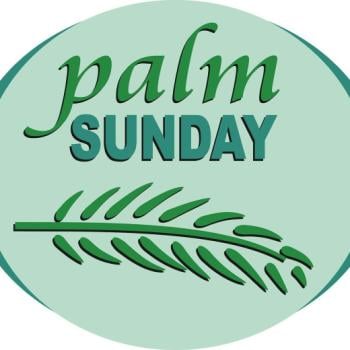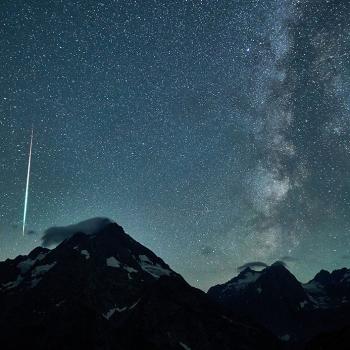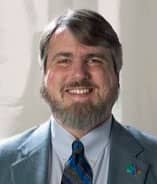And then how does reckon the age of something like the Covenant of the Goddess? 18 years, since its date of incorporation? 50 years or so, since Gerald Gardner and the beginning of the modern Witchcraft movement in Britain? 150 years or so, to the oldest identifiable individuals from whom our lineage can be traced? Or do we look back into prehistory, when our ancestors danced in circles, honored the Earth and the Moon and The Horned God?
The message that many alternative groups, whether new or old, have gotten is that "interfaith tolerance" means "The more you're like us, the more we'll tolerate you." I do not believe that this is either deliberate or malicious, only that many members of the interfaith community project the norms of their own faith onto the faiths of others, judging them thereby. This creates a pressure on alternative groups to be other than what they are.
"Well, if real religions have churches, then if we want to be taken seriously we had better get a building." Or, "If they want leaders, we had better give our Elders recognizable titles." Or, "We had better describe what we do in terms of worship and prayer." And so on.
I have had to use such language. I have talked to media people about our desire to "pray in the park," because those are the words they would understand, even though that was just one more reinforcement of those presuppositions I have discussed.
This process of adopting "mainstream" language and concepts is abetted by most Neo-Pagans themselves. Most of us were raised Christian or Jewish in America. We have internalized our society's norms regarding what constitutes a "real" religion.
There is a tendency to respond to the kind of questions and criticisms mentioned above by saying, "Gee, I guess they're right, we had better start moving toward having paid clergy, or churches, or holy books, or whatever." The intent is not to deceive, but to explain ourselves to others in terms that they will understand.
The danger is that in redefining ourselves for others, we redefine ourselves to ourselves.
The most blatant example of this for us is in the controversy over the word "Witch."
Witches are what we are, it is what our forebears called themselves, it is what they died for in staggering numbers, and yet because the culture that descends from those who tried to exterminate us finds the word scary, we are supposed to change.
To abandon the name would be disrespectful to those who have died for it. How would you feel if you were told, "Your name is offensive, please change it"? Would you expect any other persecuted or oppressed group in the world today to change their name to please their oppressor? Jews? African Americans? And yet many Witches do just that. I do it to a certain extent.
We hide behind "Wicca," and "the Craft," and "Neo-Paganism," and "the Old Religion," in many ways hiding who we are, all to avoid using "the W word," all to avoid offending or scaring someone. But there is nothing to be scared of.
Interfaith dialogue between the so-called "mainstream" churches and Pagans of all kinds, indigenous peoples to Neo-Pagans, is a tremendous opportunity to learn more about the many forms of spirituality on this earth, and the rich and diverse way that those spiritualities manifest. But to experience and benefit from such a dialogue it must be approached without the preconceptions that have colored much of the communication up to now.
I suggest that we all adopt Wilfred Cantwell Smith's recommendation, at least in the interfaith sphere. Ask new and unknown groups about their faith and their practice. Do not ask questions that are loaded with preconceptions based on your own assumptions about religion; otherwise you will likely hear what they think you want to hear rather than what they want to say and what they are. Accept that the Divine can manifest for others in ways you may never have considered. We can all only be enriched by such an exchange.
This article was previously published on the CoGWeb and is reprinted with permission.
.jpg) Donald H. Frewis a Wiccan Elder and is High Priest of Coven Trismegiston in Berkeley, California. He has represented the Covenant of the Goddess in interfaith work for almost two decades and is one of its two National Interfaith Representatives. He has served in the Parliament of the World's Religions and currently serves on the Global Council of the United Religions Initiative.
Donald H. Frewis a Wiccan Elder and is High Priest of Coven Trismegiston in Berkeley, California. He has represented the Covenant of the Goddess in interfaith work for almost two decades and is one of its two National Interfaith Representatives. He has served in the Parliament of the World's Religions and currently serves on the Global Council of the United Religions Initiative.





